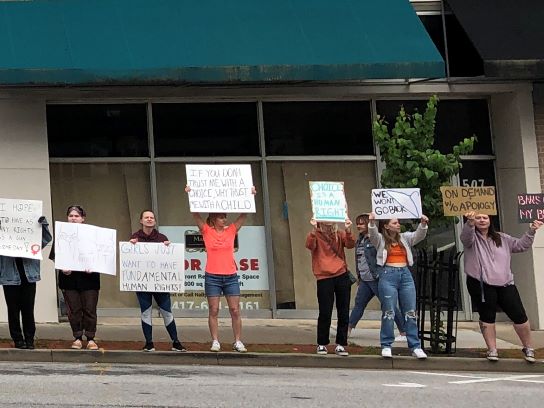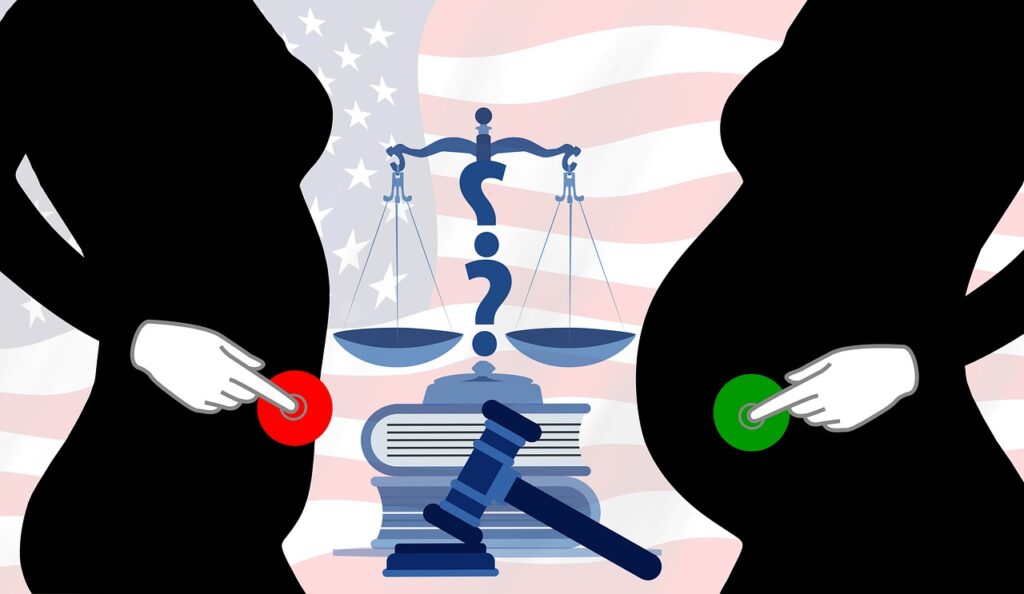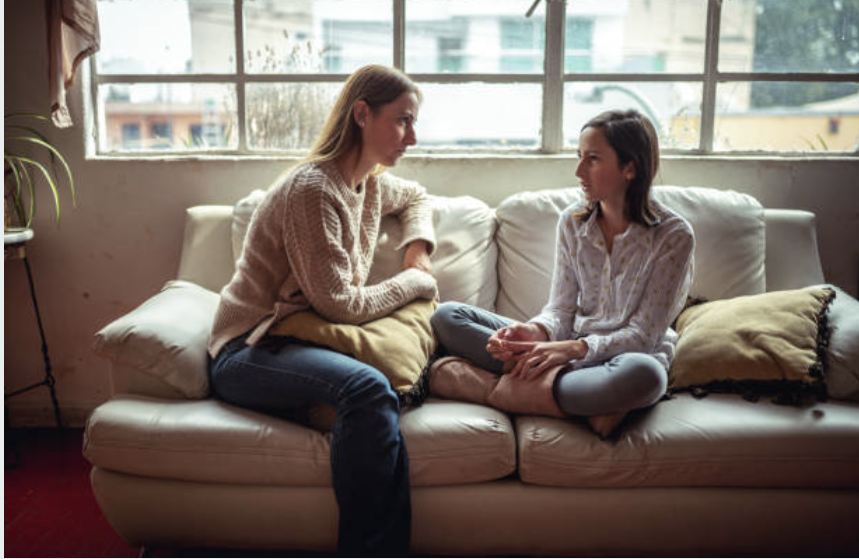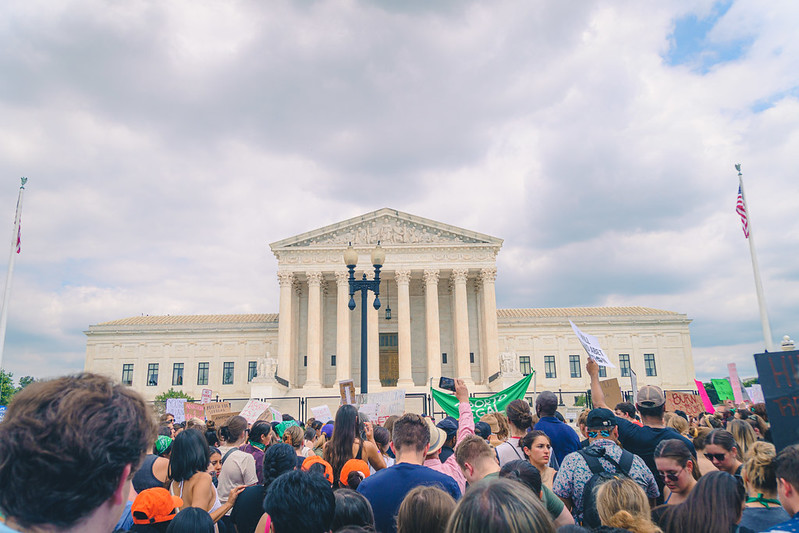(SOUTH BRUNSWICK, N.J.) – For a long time in U.S. history, Black women did not have control of their bodies. Raped by the men that owned them, they had no choice but to birth babies conceived in trauma. In an opinion essay in the New York Times, University of California, Irvine Law Professor Michele Goodwin argues powerfully that the U.S. Supreme Court’s reversal of Roe v. Wade is sending us back to a time when choice is once again not an option for Black women. “If cotton was euphemistically king, Black women’s wealth-maximizing forced reproduction was queen,” Goodwin writes. She goes on to discuss how minority women, especially Black women, will be affected by not being able to get abortions. Not only will women be impacted if they can’t afford to get on a plane to fly to a state where abortion is legal, but they will also have to worry about paying for an abortion out of pocket if they have insurance in a state that doesn’t allow it. Throughout her opinion essay, Goodwin advocates for the rights of Black women in the face of Roe v. Wade’s reversal — her essay is a valuable example of advocacy journalism.
As a Black woman myself, I know Goodwin’s quote relates to Black history when cotton, grown and harvested by slaves, was the country’s number one profit-maker. Goodwin’s reference to “reproduction as queen” is an example from the movie Roots when slave owners forced women to risk their health to keep having children to boost the needed enslaved population for tilling the land. “Black women’s sexual subordination and forced pregnancies were foundational to slavery,” Goodwin writes.
Goodwin’s essay further argues that the U.S. Supreme Court’s decision to reverse a 1973 ruling on the constitutional right to abortion violates the 13th and 14th Amendments. The 13th Amendment states neither slavery nor involuntary servitude will exist in the United States, while the 14th Amendment prohibits the states from depriving any person of life, liberty, or property. Goodwin argues the Supreme Court’s ruling violates these two amendments since ending the forced sexual and reproductive servitude of Black girls and women was integral to their passage.
With the Supreme Court’s recent ruling knocking down Roe v. Wade, Goodwin makes a strong argument for abortion and, in doing so, advocates for the pro-choice movement. She links the downfall of Roe v. Wade to women not having any constitutional rights and a return of societal enslavement by men. Progressive ideas have been stopped short. With America rolling back the expansion of human and civil rights, there is a question of whether or not such a precedent has been made for the reversal of slavery, both literally and metaphorically.
“The overturning of Roe v. Wade reveals the Supreme Court’s neglectful reading of the amendments that abolished slavery and guaranteed all people equal protection under the law,” Goodwin writes, adding, “it means the erasure of Black women from the Constitution.” She argues that with the overturning of Roe v. Wade, the government is taking away the liberty of women’s rights and making us the property of men again.
Goodwin not only stands up for women in her piece but also defends Black women in particular. “This Supreme Court demonstrates a selective and opportunistic interpretation of the Constitution and legal history, which ignores the intent of the 13th and 14th Amendments, especially as related to Black women’s bodily autonomy, liberty, and privacy which extended beyond freeing them from labor in cotton fields to shielding them from rape and forced reproduction,” Goodwin writes. She further argues that the horrors inflicted on black women during slavery have been all wiped from culture and legal memory.
Beyond discussing the technical repercussions of the Supreme Court’s decision in terms of limiting abortion access, Goodwin explores some of the tangible implications this move can have on Black women in poverty. She explains that the reversal of Roe v. Wade does a disservice to women in poverty. “Those who will suffer most are poor women, especially Black and brown women,” she writes, adding, “Black women are over three times as likely to die by carrying a pregnancy to term than a white woman.”
If I were in Goodwin’s place, I would have written my essay the same way. I believe that the way Goodwin covers abortion and race in her piece shows that history is being reversed, thus advocating for change to ensure abortion access to anyone, regardless of race. I believe women throughout history have taken a back seat to men.
When it comes to salary and job opportunities, nothing is equal. From my experience, I noticed men get paid more for doing the same job as women. When I worked at YMCA, the men got paid more money, and it was the exact same job. According to Business Insider, a woman makes 83 cents for every dollar a man makes. The one thing women had was the right to their own bodies. Now men have greater sway in the fate of a woman wanting to terminate her pregnancy.
Women have waited a long time to enjoy the same rights as men, but now, women are being told what to do with their bodies. Somebody posted in the comments section of Fox News about Goodwin’s essay, “The right decision was made, it’s time now for baby daddies to be held accountable for support from the time pregnancy starts.” But Goodwin explains how the entire system needs to be held accountable for not supporting women’s decisions about their bodies. Society is what needs to step up, not just the baby daddies. The circumstances that lead to abortion go way beyond unprotected sex. Goodwin’s piece can impact every Black woman because it shows how their voices are often left out of the national conversation on abortion, leaving them to feel powerless. I wouldn’t do anything differently in this article because Goodwin stands up for women as a whole when she also discusses what Black women go through. Her opinion piece connects not only with Black women but all women who feel their freedom has been wiped away along with Roe v. Wade.





